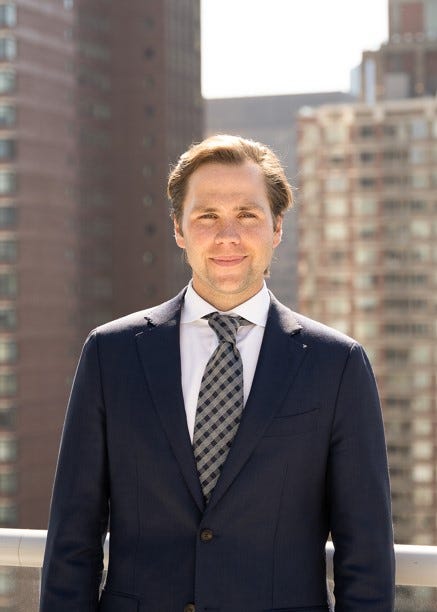Topline/Bottomline: Small Business Administration (SBA) Financing with Brian Brady
A monthly update on what you should be aware of in the Brooklyn commercial real estate market, from upcoming legislative changes to owners' insights and recent trades.
It’s no secret that rising debt costs have driven prices down for traditional investors. However, user-buyers have filled the gap, helping certain asset types hold or even increase in value, allowing sellers to achieve significant premiums over investor offers.
With this shift, we’ve become well-versed in how to effectively sell to users—though one of the biggest challenges is often figuring out how they can finance their purchase. To shed some light on this, I reached out to my colleague Brian Brady, a debt broker specializing in owner-user SBA loans to address the four most common questions buyers and sellers ask me about SBA financing.
Brian is the Vice President of Capital Markets at Matthews Real Estate Investment Services’ Tampa office, and has decades of experience arranging financing across asset classes. Since 1998, he has focused on owner-user SBA loans for industrial, hospitality, gas stations, and car washes throughout the country.
What is SBA financing and how is it different from conventional financing?
SBA financing is a government-guaranteed loan designed for owner-users to purchase, refinance, renovate, or build commercial properties. An owner-user is defined as an operating business entity that occupies at least 51% of the building's leasable area. SBA loans offer up to 90% financing, a significant advantage over conventional loans.
There are two types of SBA loans used for real estate. The first are SBA 504 loans, which provide lower rates with longer terms and are most often used when the real estate is the primary asset. Second, you have SBA 7(a) loans, which are sometimes used if a deal has significant business goodwill. For our clients, SBA 504 is typically the preferred choice.
What are the requirements to qualify for SBA financing?
SBA loans are full-recourse to the business owner(s) purchasing the property. While some franchised start-ups may qualify, most underwriters prefer businesses that have been established for at least five years and profitable for three of those five years. Businesses expanding or replacing rent are excellent candidates.
For instance, I’m currently working with a Florida-based painting contractor. The business has been around since 1992, and the current owner took over from his father in 2010. They lease a warehouse and a parking lot. Now, they’re buying a standalone warehouse on an acre of land, with plans to pave the lot and improve the space. The total project cost of $2 million will be financed 90% through an SBA 504 loan, requiring just over $200,000 in equity.
How long does it take to get approved for SBA financing?
That’s one of the drawbacks. SBA loans are paperwork-intensive, typically taking 60-90 days – assuming the borrower is well-prepared. I once closed a 504 loan for an unbranded beachside motel in 55 days because it was a straightforward deal. On the other hand, I closed a 504 loan for a new dog daycare franchise that took nine months because the owner switched architects, and the municipality delayed construction approvals. For industrial buyers, a standard building purchase should close within 60-90 days.
Why should they work with you when trying to get approved for SBA financing?
There are three main reasons to work with a debt broker when looking to secure SBA financing:
Speed: We help close the loan faster. We know the process well and can push the bank when lending departments are backed up, ensuring your file gets prioritized.
No Cost: Banks pay our fees, so whether you go directly to the bank or work with us, it doesn’t cost you anything extra.
Market knowledge: We shop your loan file across various SBA lenders before you commit. I’ve seen quotes that differ by as much as 2% between lenders. We ensure you get the most competitive loan terms available while smoothly closing the deal.
If you’re interested in learning more about SBA financing, feel free to reach out to schedule a call with Brian.
Bobby Lawrence is an Associate Vice President at Matthews Real Estate Investment Services (MREIS) focusing on the sale of investment property in the Brooklyn markets. Opinions are his own and do not reflect those of MREIS.



